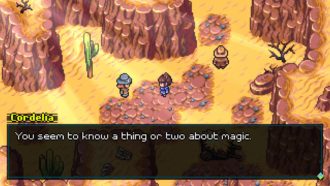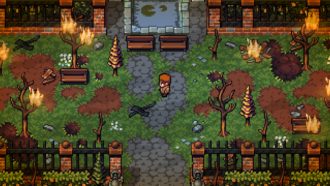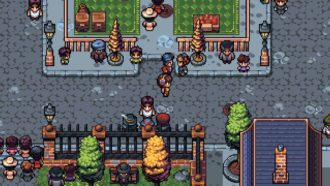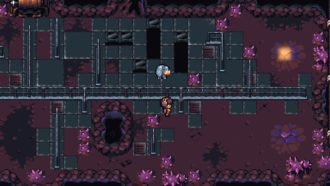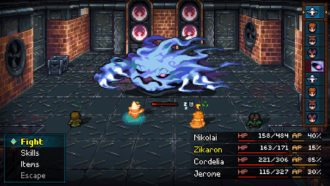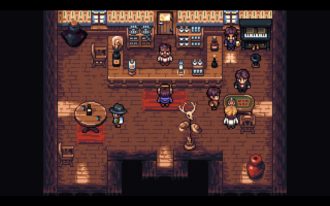Platform:
PC
Released:
August 27, 2025
Publisher:
Something Classic Games LLC
Developer:
Something Classic Games LLC
Quartet is a love letter to retro-style turn-based JRPGs. While it wears many of its influences on its sleeve (particularly the Octopath Traveler series and Final Fantasy VI), its strong writing, amazing soundtrack and enjoyable character-switching gameplay made this adventure one to remember, and not just a simple homage to the games that inspired it.
The general premise of Quartet is very reminiscent of Octopath Traveler, in that the player picks one of a selection of playable characters at the start. I found each of the initial protagonists likable and compelling. Nikolai is a soldier and firefighting specialist who turns against his commanders when ordered to commit atrocities. Alexandra is a young woman who finds herself on the run after developing magical powers out of nowhere. Cordelia is a skilled court mage fighting to make a name for herself after being unjustly ousted from her position. And finally, there is Ben, a chef with a mysterious past who wants to use his newfound magical powers to help those around him.
Once a character’s chapter is done, the player then selects another and plays through that until all the chapters have been completed. On one hand, Quartet echoes some of the issues with Octopath Traveler’s storytelling, which is that telling each character’s narrative one after the other in separate tales isn’t the most efficient, and it can be easy to forget details of where characters are or what they’ve done when they vanish from the story for several hours. As a result, the game’s first eight hours or so, which focus on the introductory chapters for each of the protagonists, is a bit of a slow burn, and very linear with little opportunity to explore.
On the other hand, Quartet does what I wish the Octopath Traveler games would have done and actually links everyone up in the game’s second half and has them meaningfully interact. Actually having the game’s varied protagonists bounce off one another fleshes out their personalities a lot. This interconnectivity also makes the plot a lot easier to follow when it involves all of the main characters simultaneously.
I found myself quite engaged with Quartet’s narrative and world. For my complaints about the slow-paced beginning chapters, it at least does a good job of establishing each nation and faction in the setting, and setting up some of the mysteries of how they connect with one another. The cast rises above being stock JRPG templates, especially during the late game, via a series of side quests that further flesh out their character arcs.
“Quartet’s combat feels instantly familiar, albeit with some welcome quality of life improvements to modernise the experience.”
Quartet’s combat feels instantly familiar, albeit with some welcome quality-of-life improvements to modernise the experience. There are no random encounters, with combat starting when you walk into an enemy on the field. Combat is turn-based, where your party of four can attack, defend, use items or expend Ability Points (or AP) to use skills.
Counterintuitively, your four-character party in Quartet eventually swells to eight characters, and you can swap out your main party members with those in your reserve party at any time during battle. One element I particularly appreciated is that your party members are always slowly restoring their AP each turn, and guarding and swapping out party members recovers their AP even more. It was a mechanic that encouraged me to never be stingy with my ability use in battle, as recovering the spent AP could be done in a turn or two without even needing to use any items.
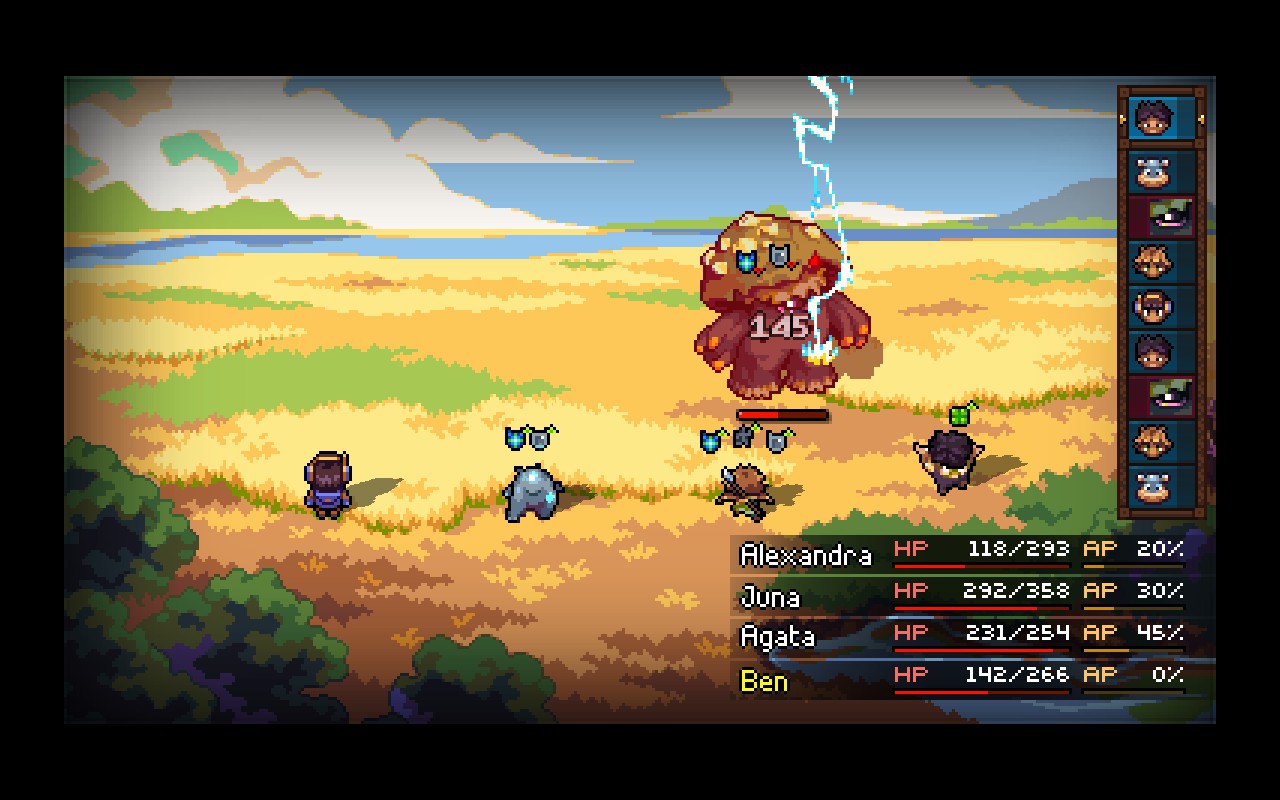
Combat in Quartet isn’t terribly complex, but it is functional and enjoyable. I appreciated that even bosses weren’t immune to most status effects. This encouraged the use of abilities that reduce enemy defence or cause damage over time, and ensured that few skills went unused. The ability to save the game at any time outside of combat, as well as quickly reattempt fights after a game over, and an easier difficulty mode for those more invested in the story than the combat, also reduces the frustration of some of Quartet’s more challenging encounters.
That said, there is also a strong emphasis on exploiting enemy weaknesses through one of the three types of physical attack or four types of magical element types. Considering just how many foes there are, it would be nice if there were a way of tracking what each enemy was weak to after you had initially scanned them or exploited a weakness in the past. It would save time and ensure I am not wasting time using spells the enemy will resist over and over, especially when little about the enemy’s appearance or name gives much of a hint to what they’d be weak to.
Quartet also occasionally mixes things up with puzzles or other non-combat challenges. They were rarely especially intense or integral to the experience, but adding in the occasional stealth sequence or logic puzzle did a decent job of adding some variety to the proceedings.
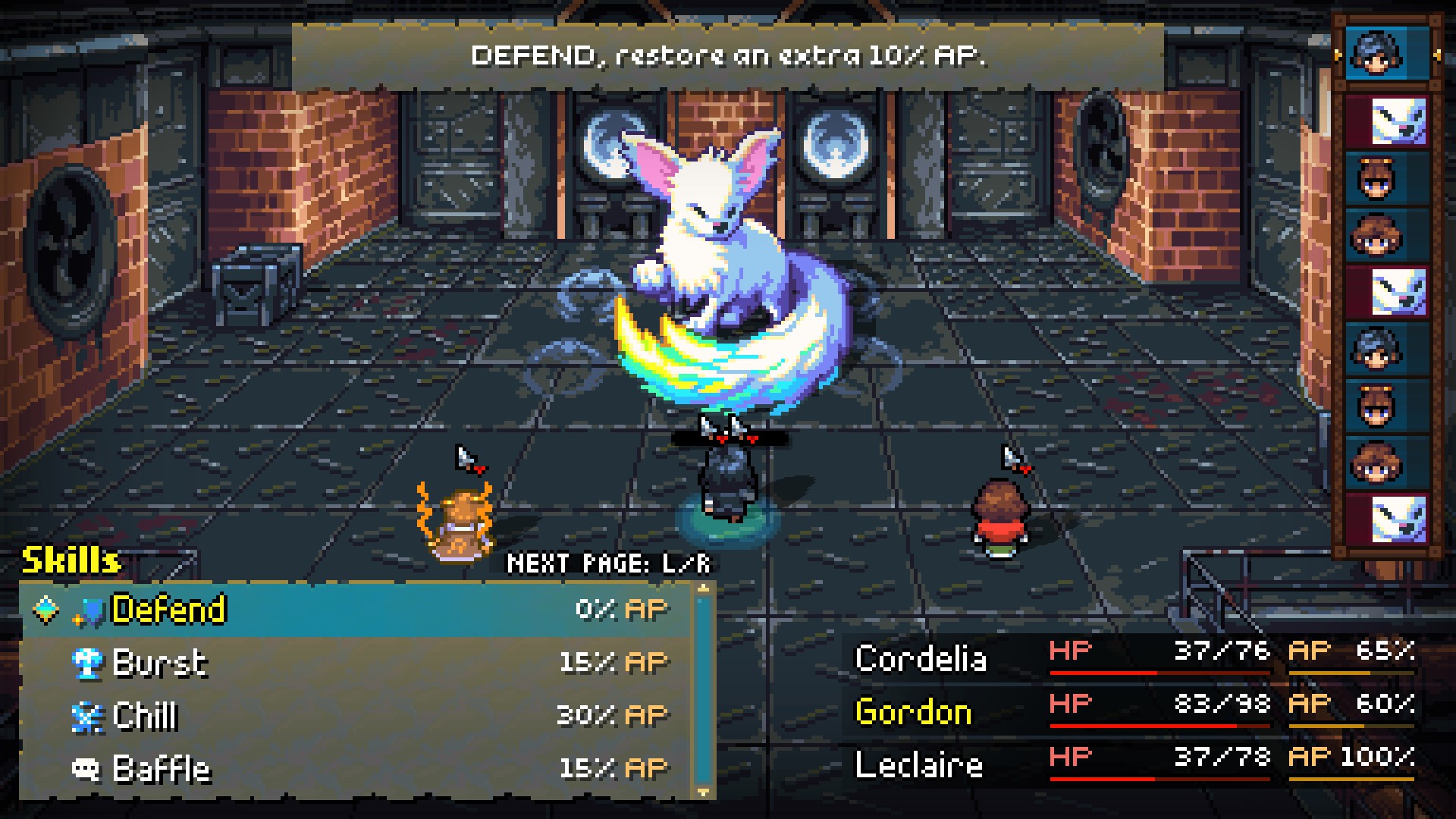
I must also commend Tyler Mire’s orchestral soundtrack; from the jazzy battle music to the adventurous world map themes to the jaunty town tunes, Quartet always sounded great and featured a large number of memorable tracks that will stick in my head for some time to come.
The visuals were a bit less impressive with their static enemy combat portraits and overall limited animation. However, the game’s 16-bit graphics were always easy to read, and Quartet had a good variety of locations to keep each chapter fresh and visually interesting.
8
Great
Positive:
- Setting is rich with a large and interesting cast.
- Turn-based combat, while familiar, is enjoyable
- Gripping and memorable soundtrack
Negative:
- Opening chapters are quite slow-paced and linear
- Enemy weaknesses are often unintuitive
With Quartet, Something Classic Games LLC has excellently captured what made the golden age of 16-bit turn-based JRPGs great and produced something that feels both authentic to that era but also comfortably modern. With its large, well-developed cast, captivating narrative and fun combat system, I found myself strongly invested in its world and its gameplay. Quartet does enough to establish its own identity and avoids being merely a simple homage to the likes of the old Final Fantasy and Dragon Quest games. If you’re a turn-based RPG fan, Quartet shouldn’t be missed.
